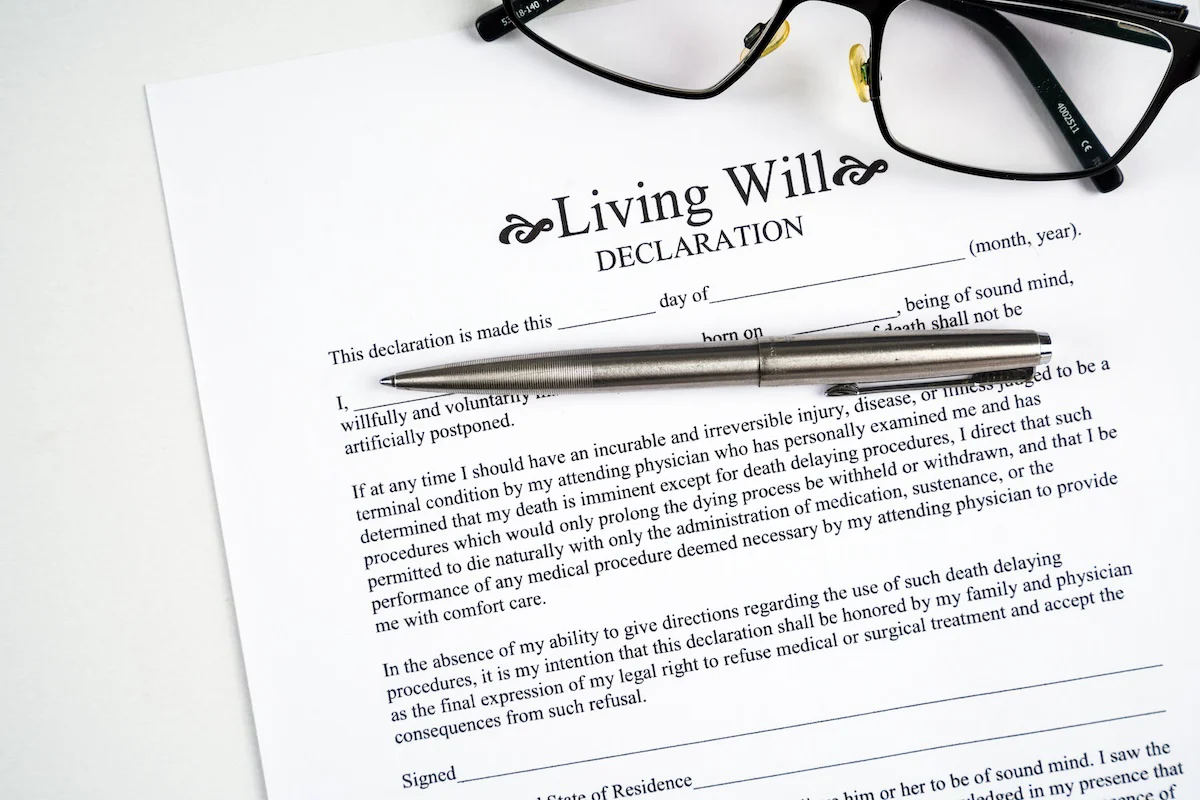
Do I Need an Advance Healthcare Directive?
As we age, there are specific questions we need to answer for ourselves, especially when it comes to our health. Many of those answers cause stress, particularly when it comes to our health as we get older.
Creating an advance healthcare directive ahead of time can help mitigate some of those worries, but you may end up with more questions. Is this the right move for you? What does it entail? How will this document apply to life as a senior living in Arizona? Read on below to find out more.
What is an Advance Healthcare Directive?
By definition, an advance healthcare directive is a written legal document that states your healthcare wishes. If you become unable to communicate these wishes, this document will state them clearly so they can be honored.
Once this document is created, you may also want to review it annually or every few years to ensure it’s still accurate. You can update it to reflect significant life changes, such as retirement, changes in health conditions, or a move to an Arizona senior living community.
Types of Advance Healthcare Directives
There are two main types of advance healthcare directives. One is a written document you create on your own, but another way to create an advance directive is to make an oral statement in the presence of your doctor and a witness. While you express your wishes, your doctor will write them in your medical record. The doctor, the witness, and you will all sign and date a statement, which will be kept in your medical record.
A living will is one type of advance directive. Usually, this states your wishes regarding life-extending treatments such as life support. It also can state whether or not you want to donate your organs.
A living will is typically consulted when an individual is in the late stages of a terminal illness or is unable to make and express decisions on their own. The living will only comes into play if at least two physicians confirm that an individual is medically unable to make their own decisions.
A durable power of attorney for healthcare can also be known as a medical power of attorney. This legal document names an individual as your chosen proxy to make the medical decisions once you can no longer make decisions.
The agent you name on this document should be someone you trust and who will be your advocate if anyone disagrees with your wishes. Your healthcare provider should not be selected for this role. Specific requirements for naming a person may vary by state, so look into the requirements for where you live.
How To Know If You Need an Advance Healthcare Directive
Having an advance healthcare directive is not required, but it’s good to have one, especially if you have strong feelings about your medical treatment and want to ensure your values and wishes are upheld. You can create one at any point in your life, regardless of age or health condition.
There are several deciding factors that prompt people to create advance healthcare directives. In some cases, individuals decide to create an advance healthcare directive in the early stages of Alzheimer’s disease and dementia. That way, you ensure your healthcare wishes are in writing before you can no longer communicate them yourself.
You may also decide to make an advance directive to relieve your loved ones of the decision-making burden and avoid any disagreements within your family if the decision is left up to them.
No matter the reason, if you think you need an advance directive, create one as soon as possible.
Steps to Take to Create an Advance Healthcare Directive
Laws and requirements for these documents vary by state, so make sure you know yours ahead of time. Some states require that you fill out and sign official forms. Make sure you find the proper forms for your state and fill them out correctly. Organizations like AARP have information about requirements per state, or you can search for Arizona senior living resources.
Talk about advance healthcare directives with your doctor and your healthcare wishes with your family. Emphasize why it’s important for you to create this plan. Keep them informed of the directive and update them if you make any changes. You may also want to provide them with a copy.
Keep the original documents in a secure but easily accessible place, and let your loved ones know where this place is. Give the originals to someone you trust implicitly. You can also have your directive stored within the US Living Will Directory.
Make copies and provide them to your doctor, your medical team, your proxy or health care agent, and your family members. If you live in a senior living center in Arizona, provide copies to the staff there. Make sure to keep a record of who has these copies as well.
You may also want to keep a copy with you when traveling; it may be recommended to keep a card in your wallet that states you have a directive and who to contact about it, such as the contact information of your medical provider and health care agent.
If you don’t have an advance directive but are in a hospital and want to put a DNR or other health care instructions in place, you can ask for one to be created while in the hospital. Once you leave, that particular type of directive will become invalid.
BridgeWater Assisted Living is an excellent option for senior living in Arizona, and our care team is highly trained to respect your wishes. We can also work with you to create an advance directive if you still need to create one. Schedule a tour with us today and see how we can support you or your loved one as you age.